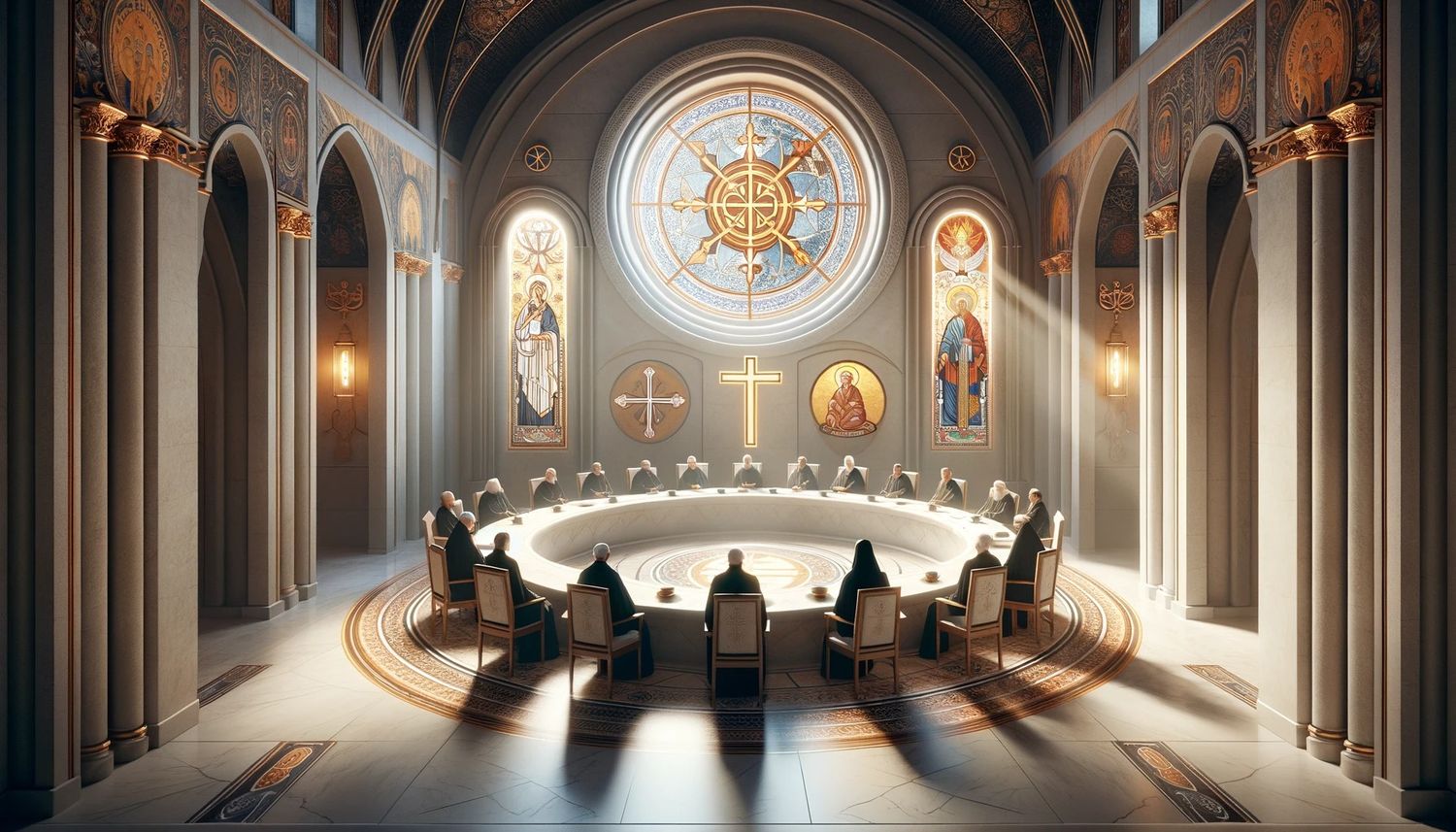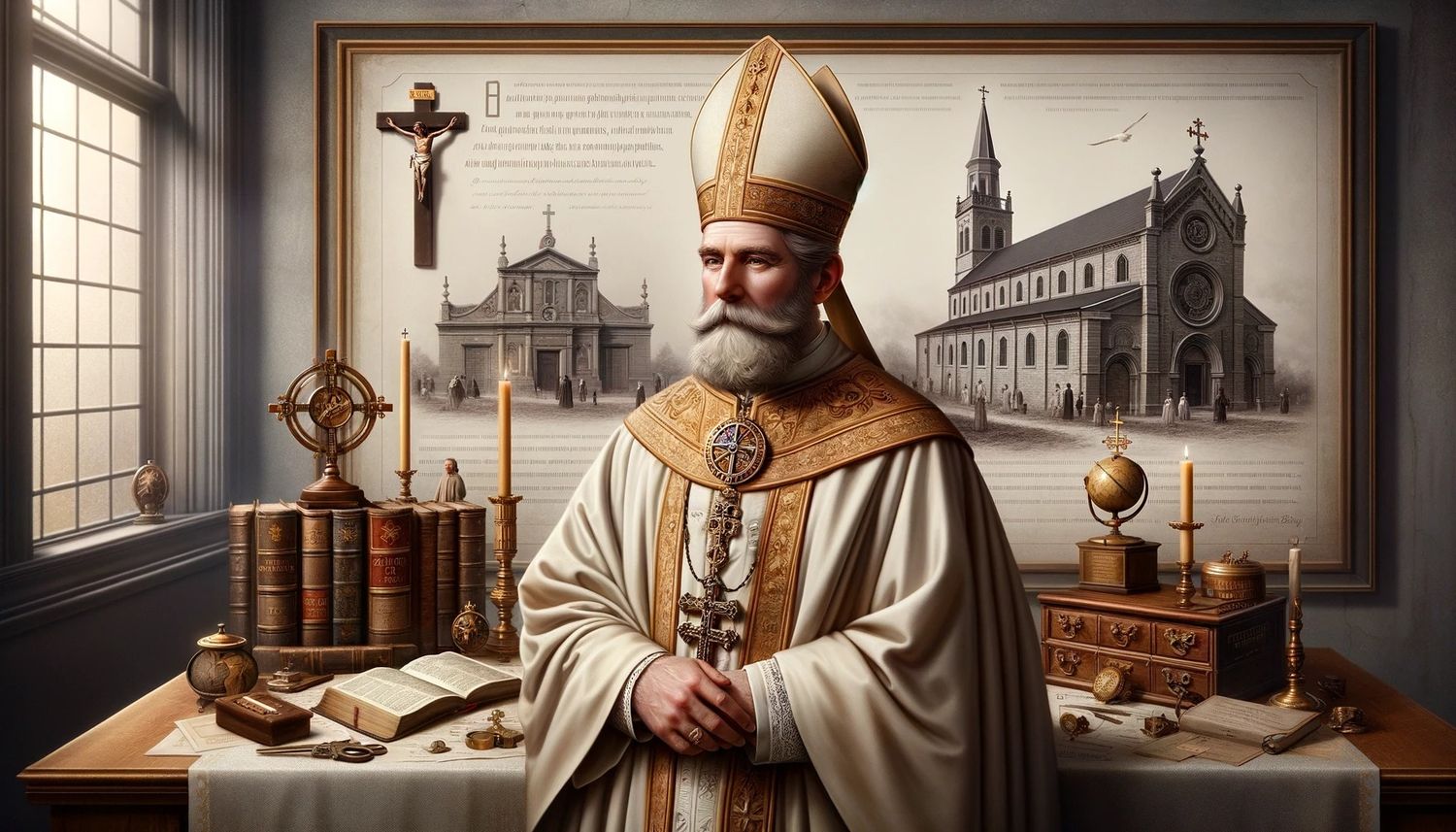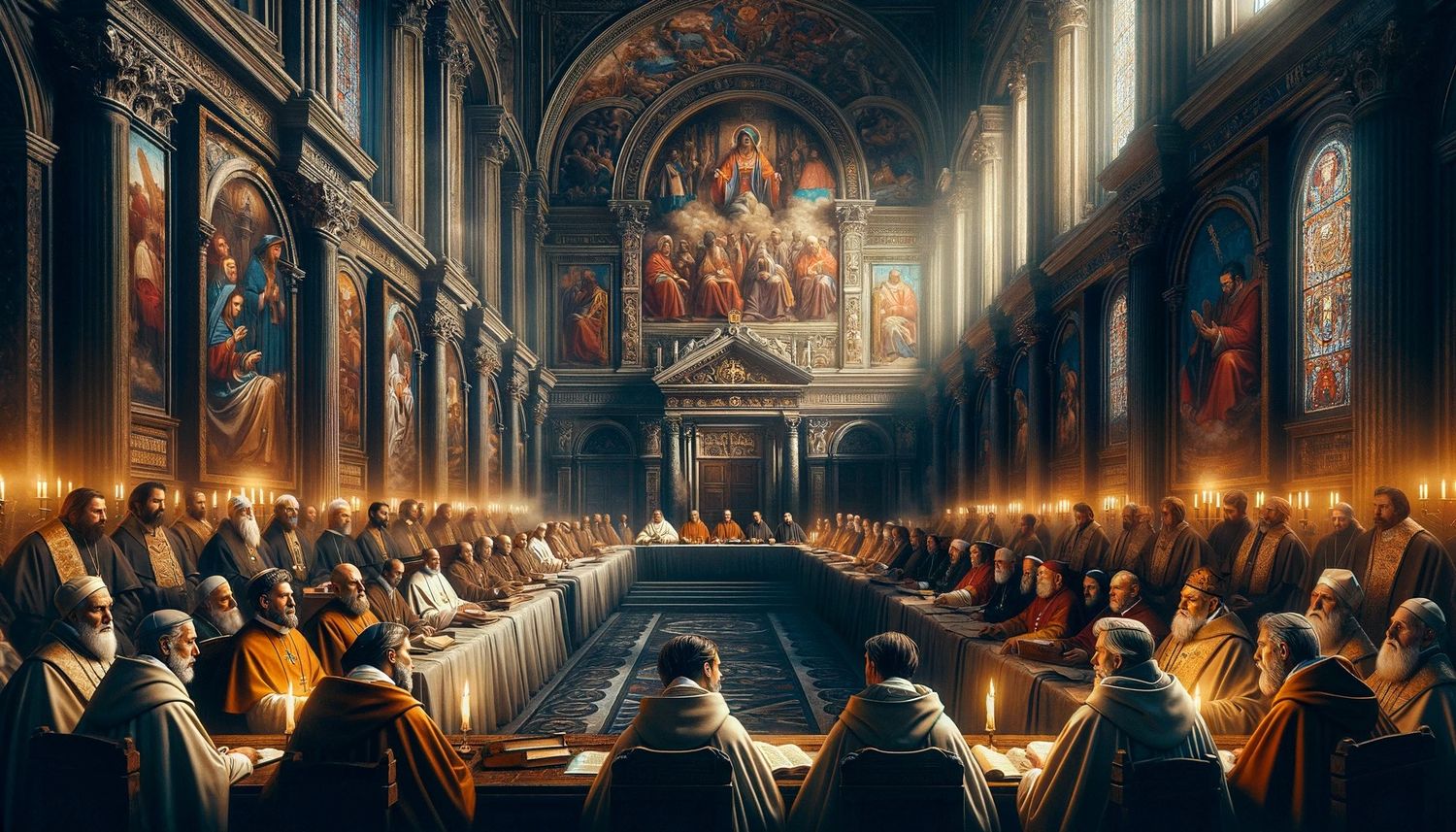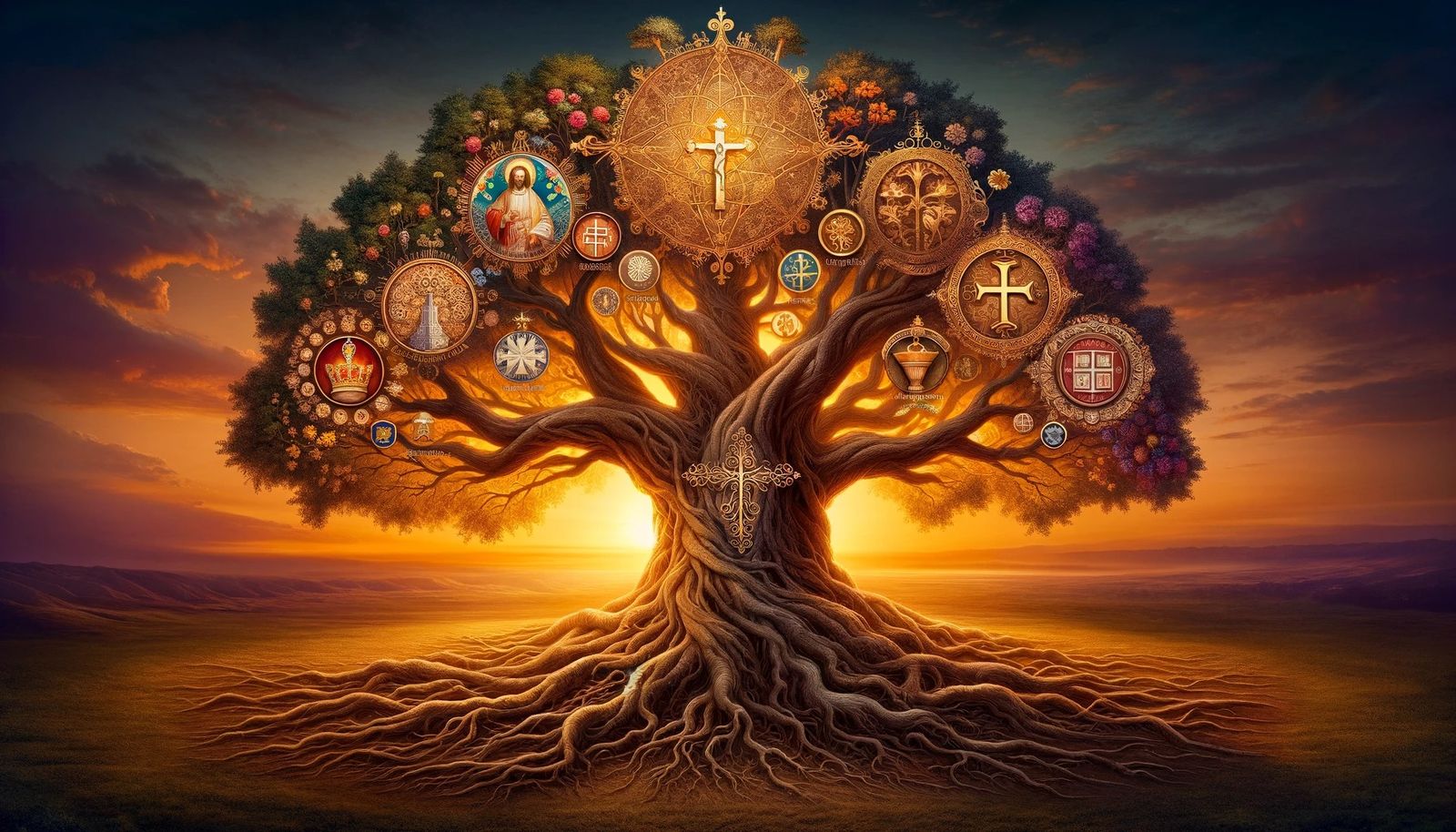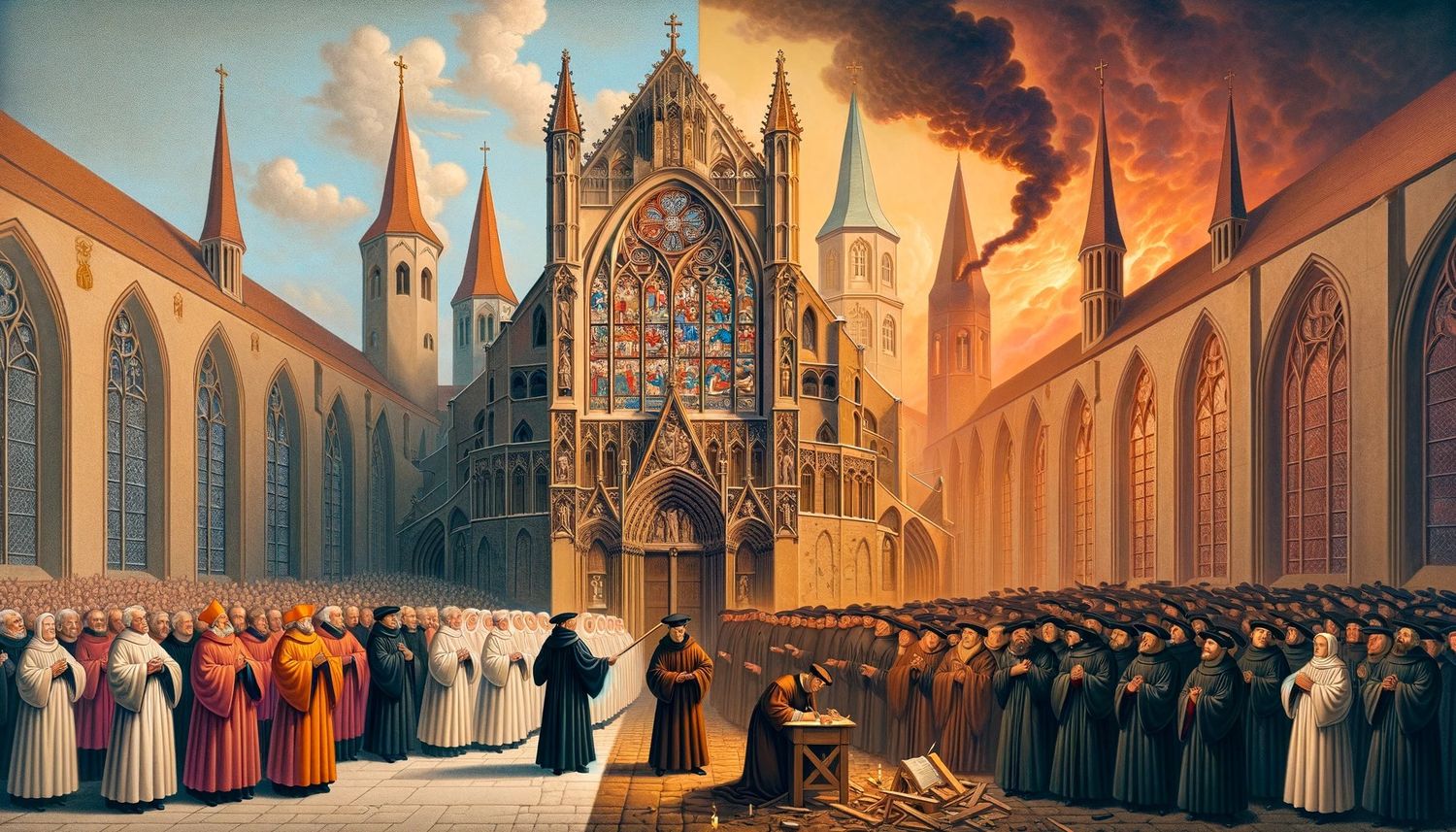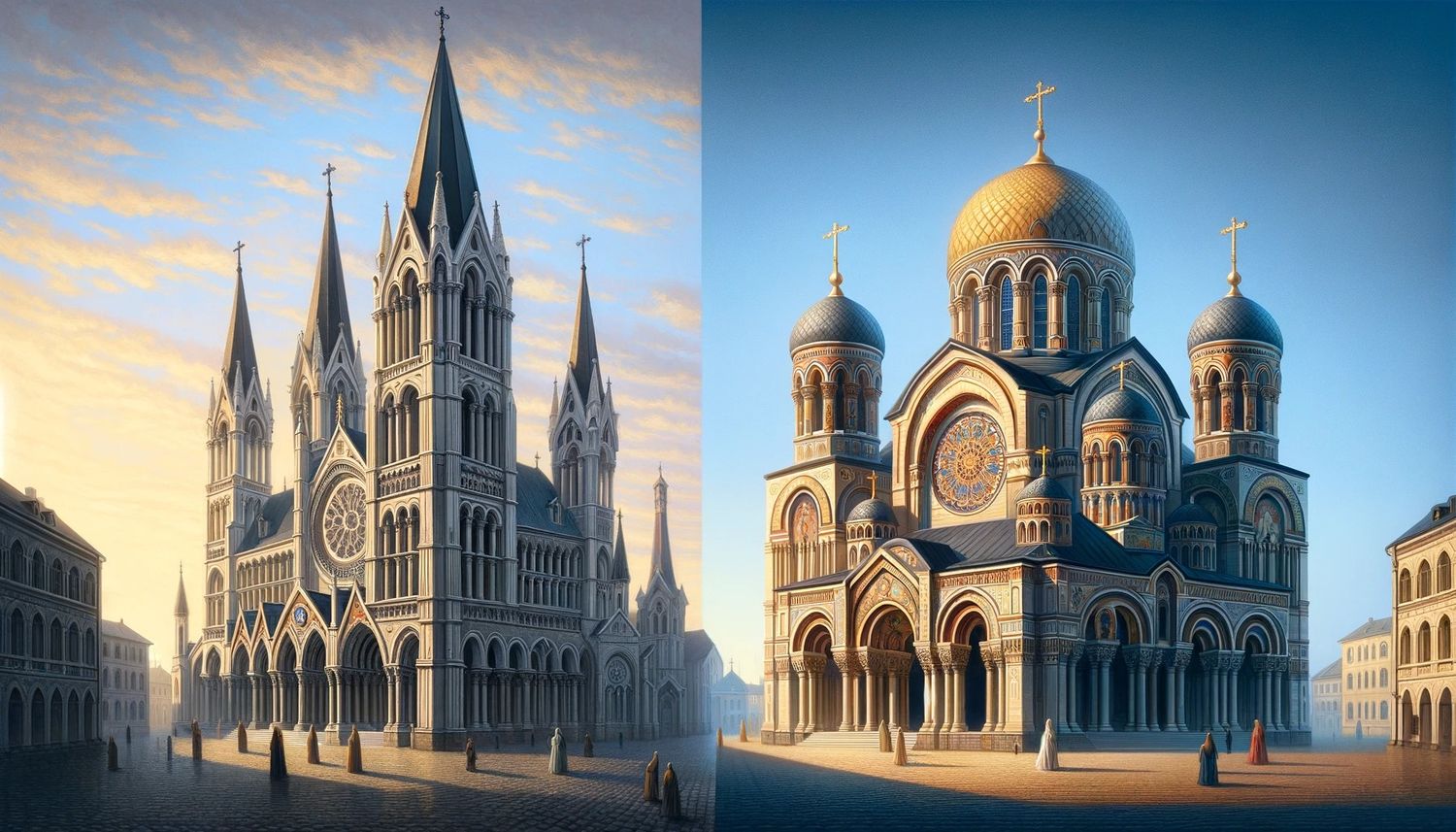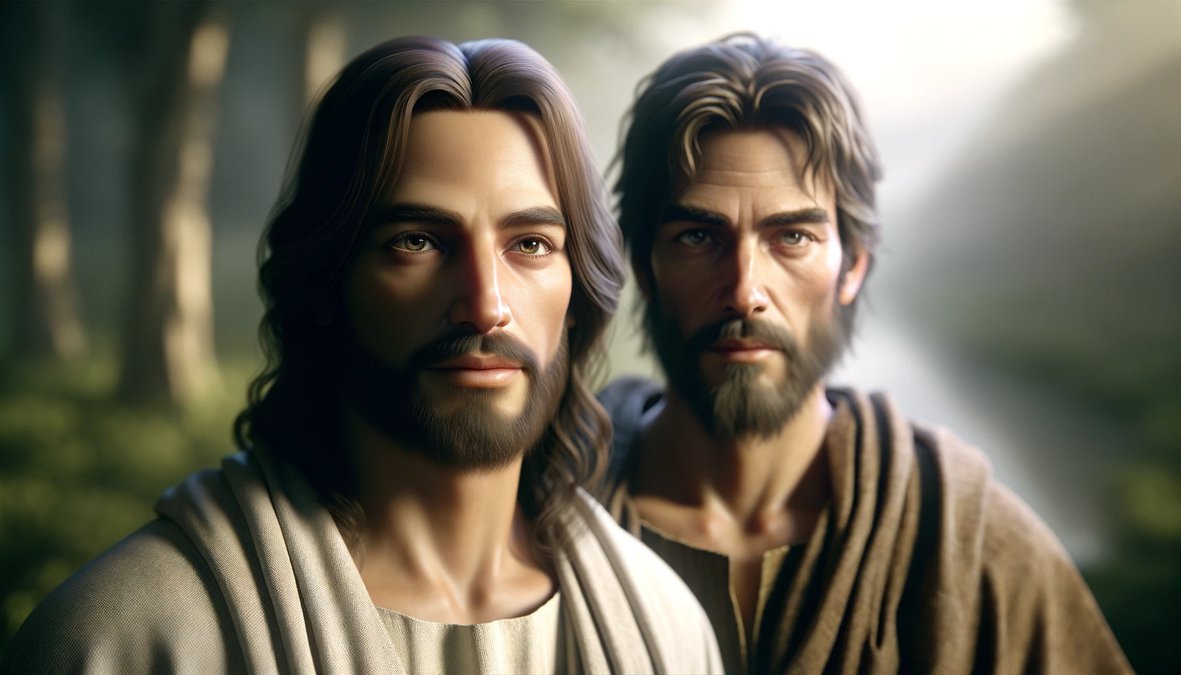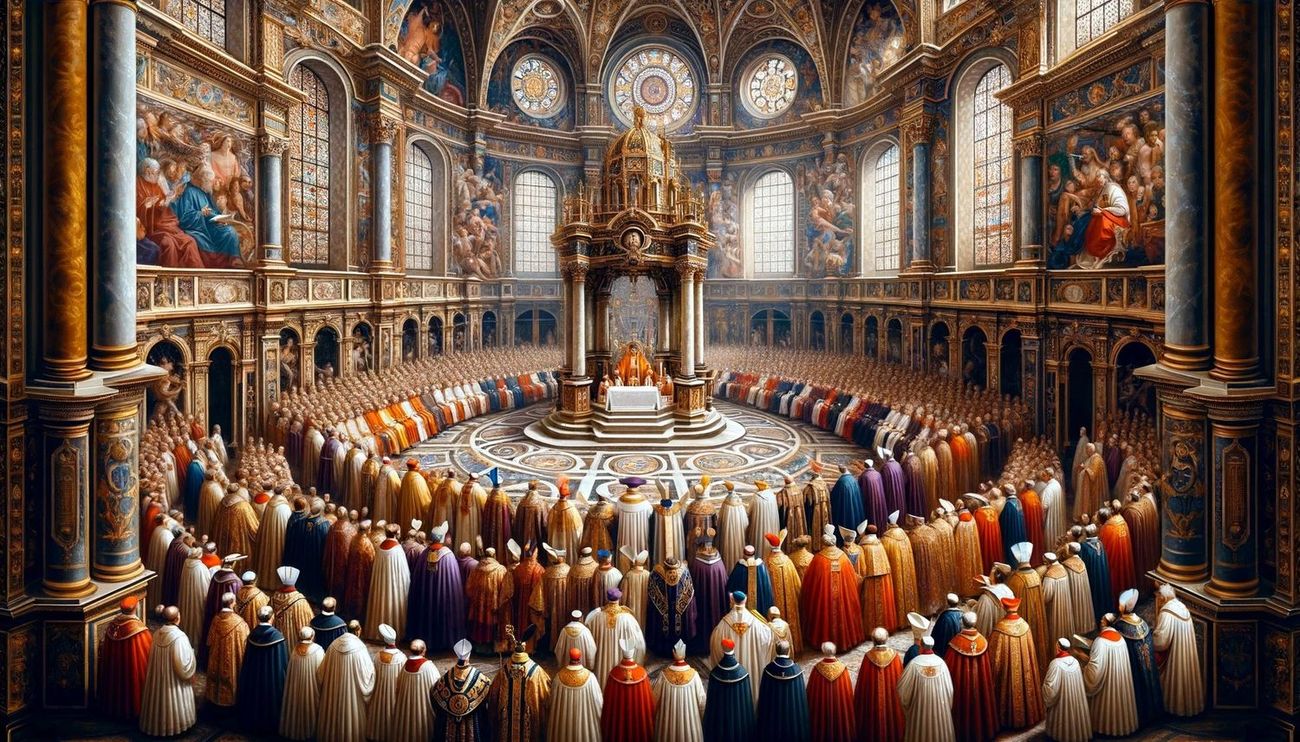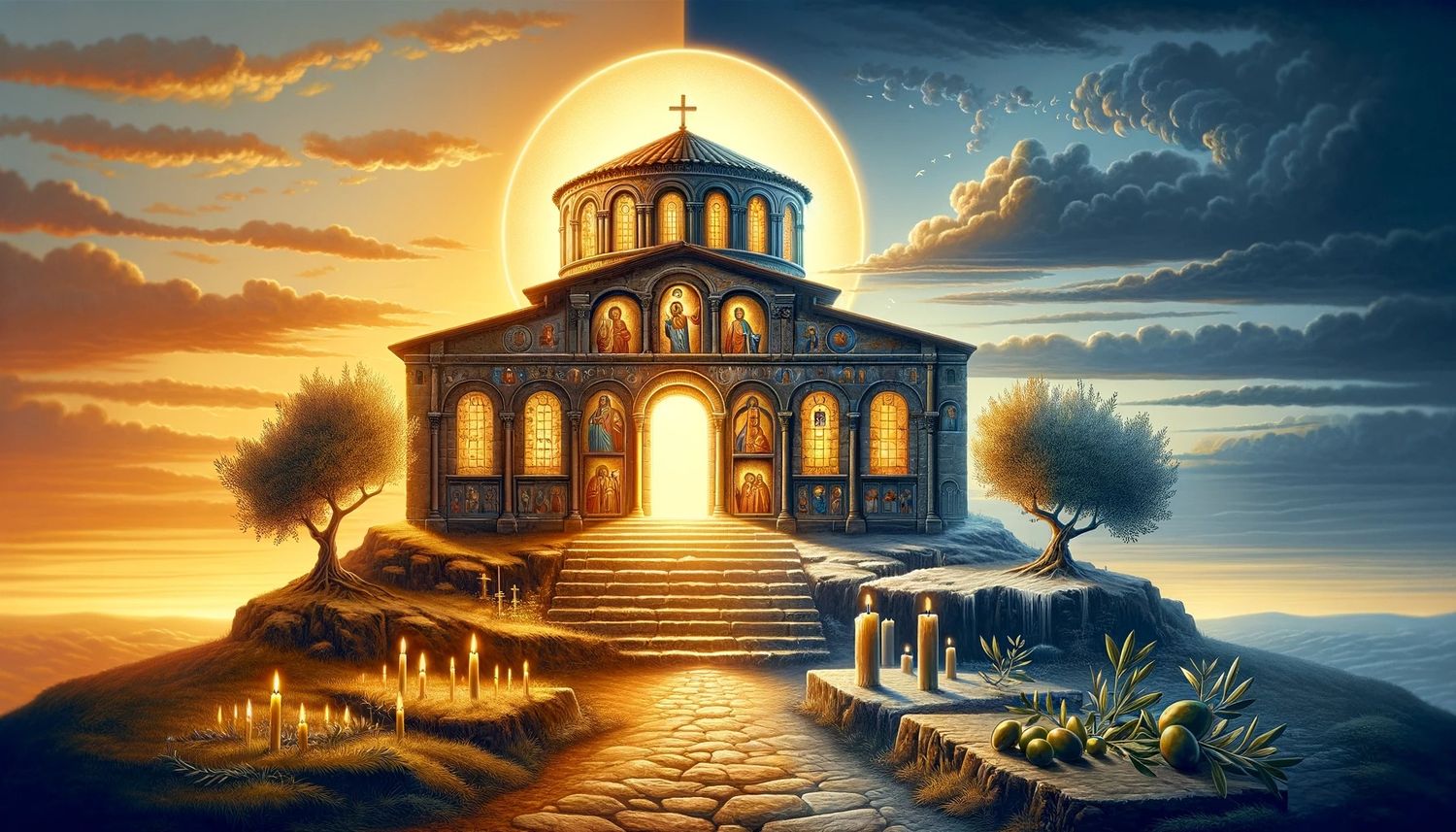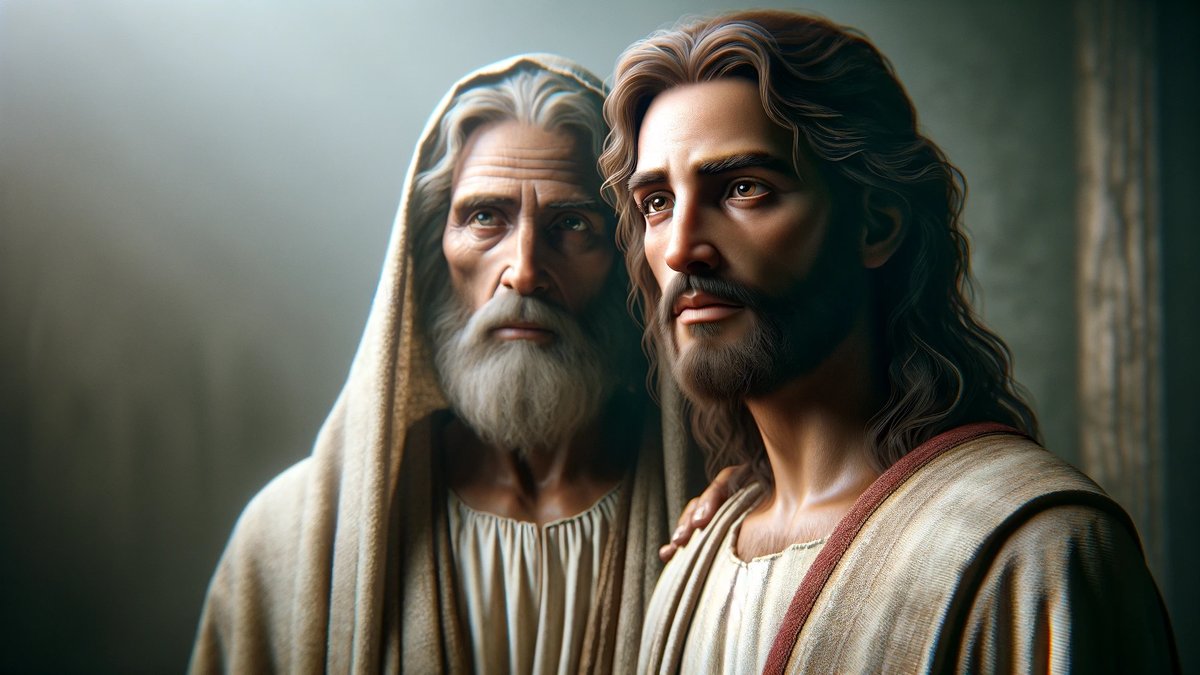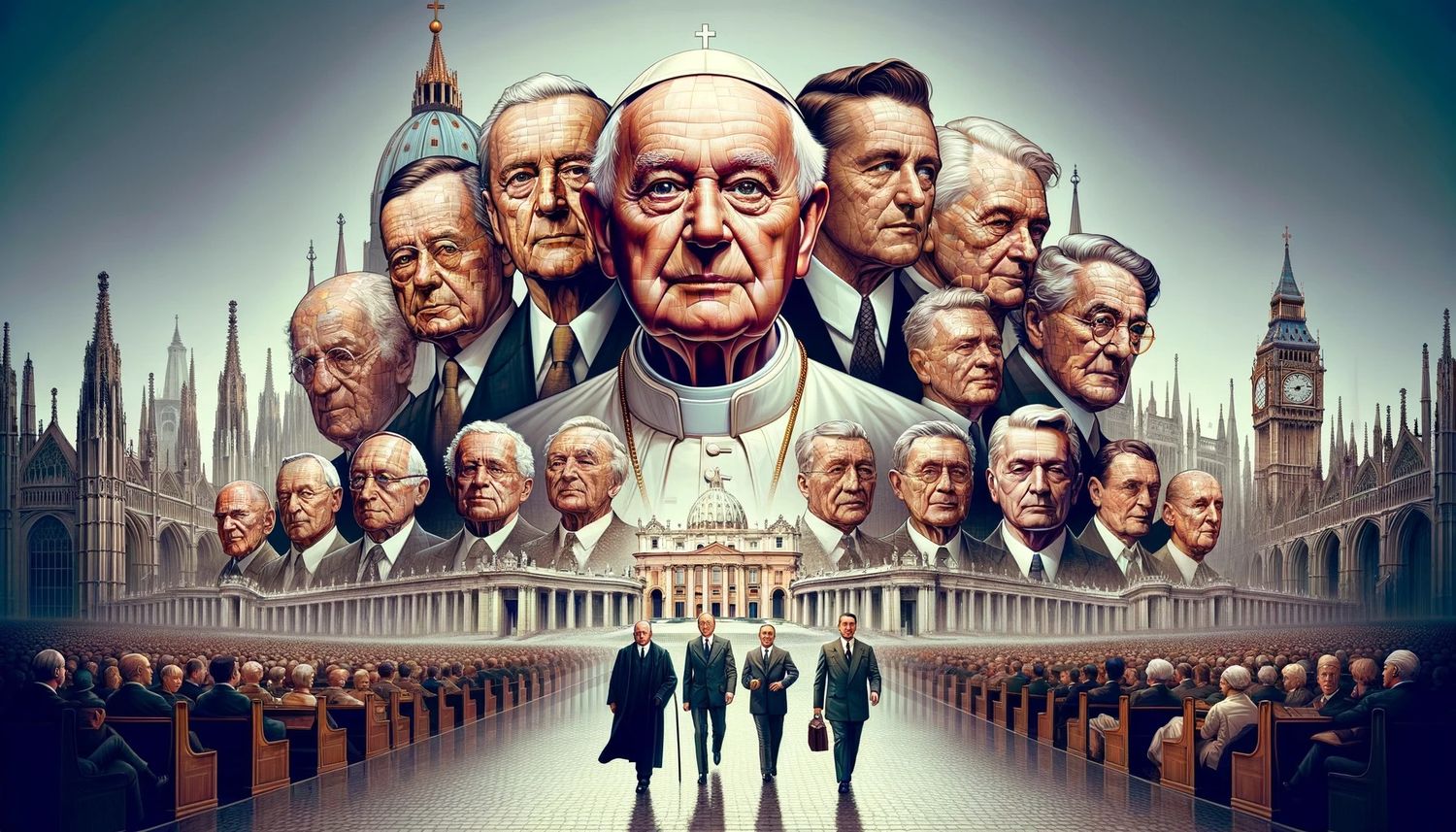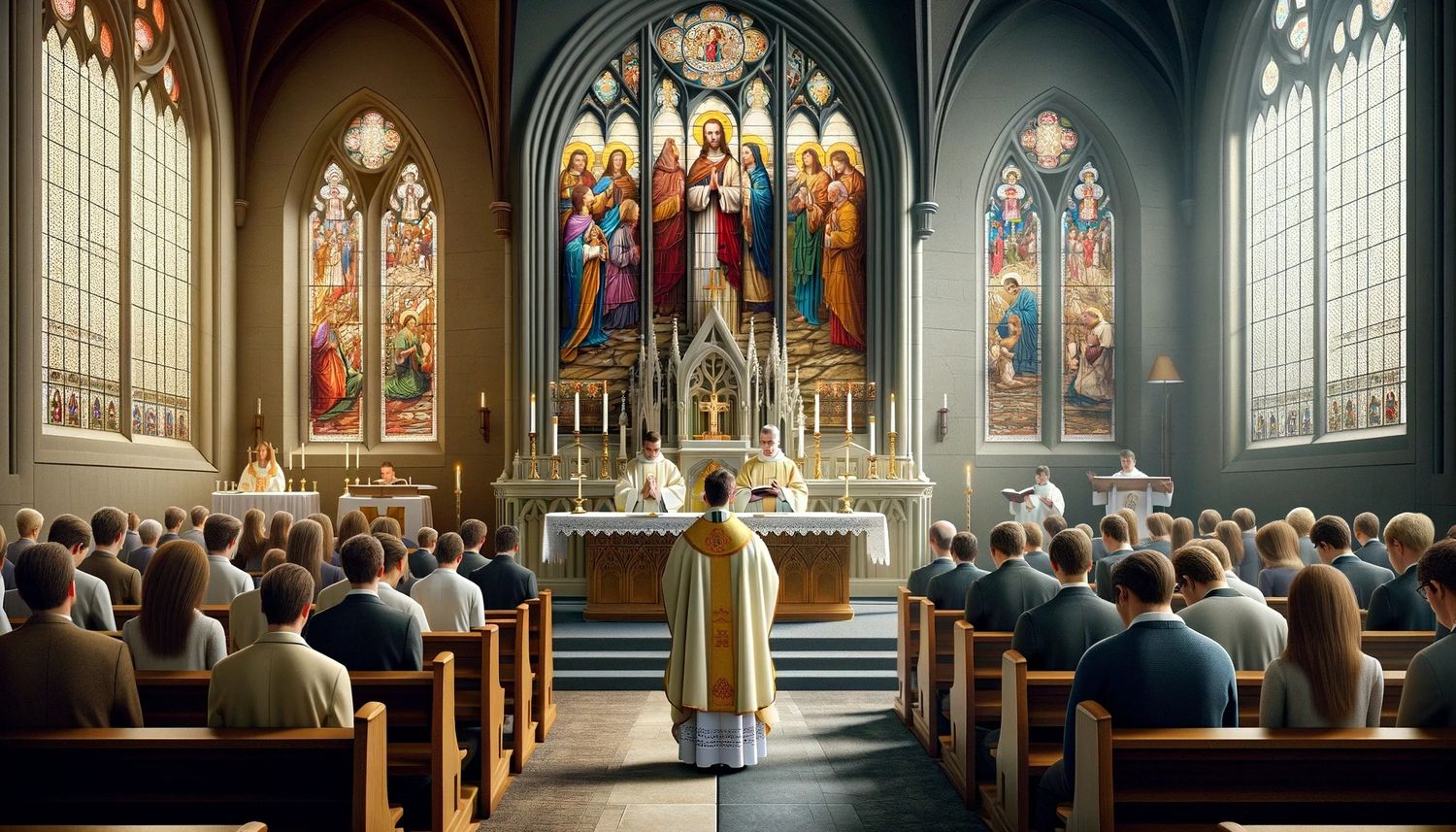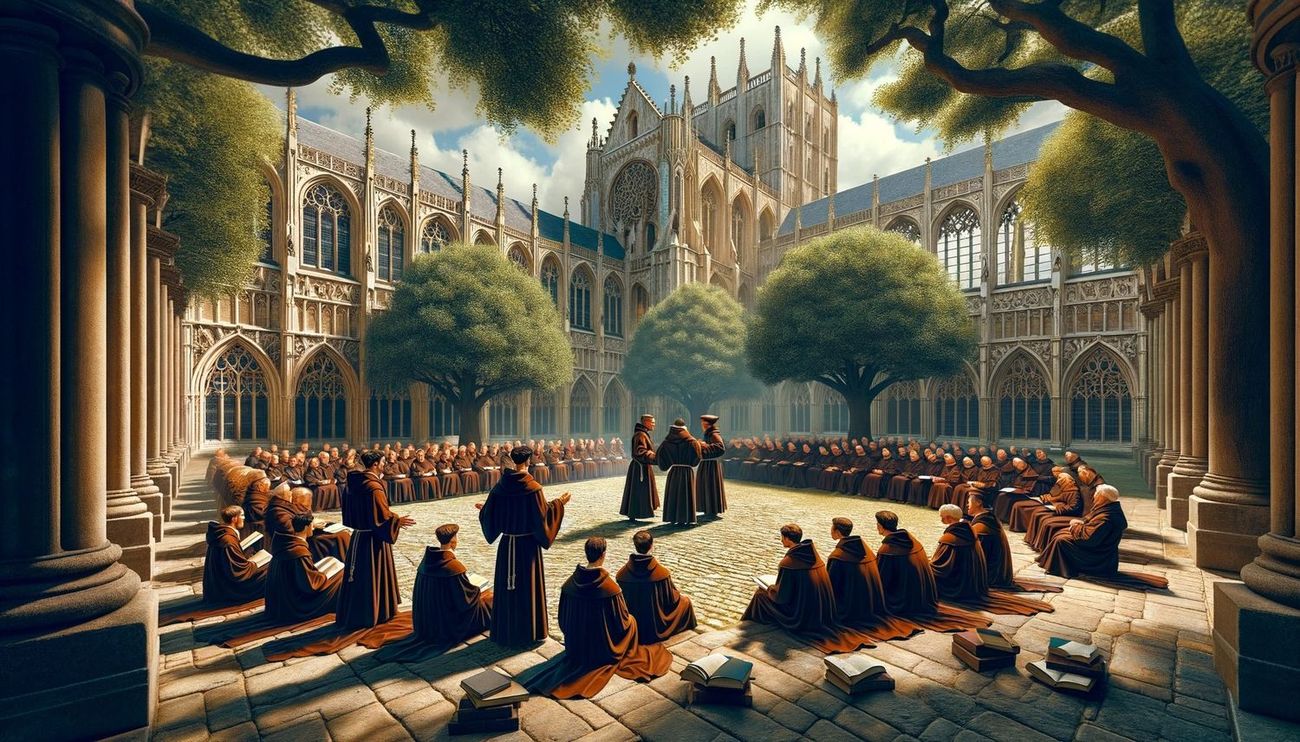Home>Theology and Spirituality>Which Is Older: Christianity Or Catholicism
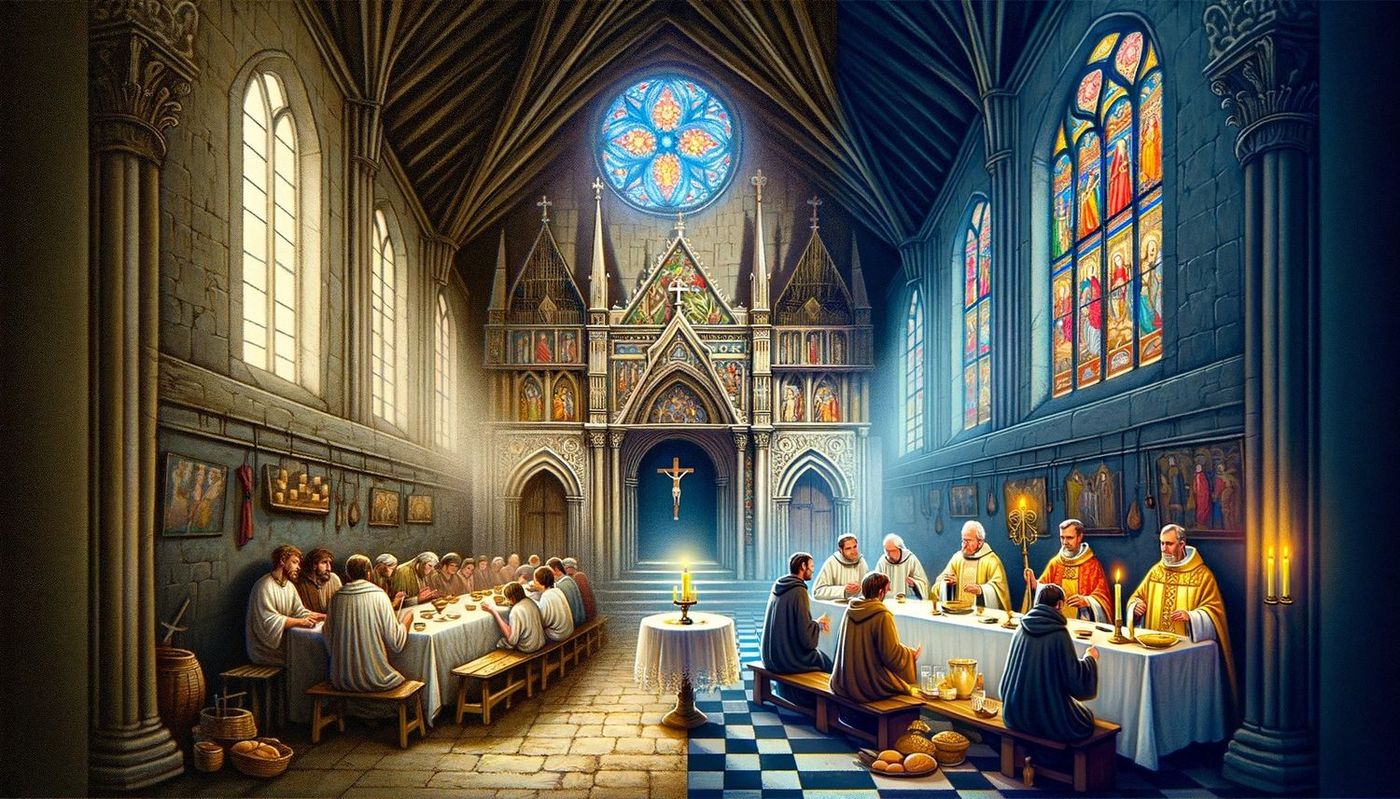

Theology and Spirituality
Which Is Older: Christianity Or Catholicism
Published: February 18, 2024
Jason DeRose, Managing Editor at Christian.net, uses his expertise in religion and journalism to deepen understanding of faith's societal impacts. His editorial leadership, coupled with a strong academic background, enriches the platform’s diverse content, earning him recognition in both journalism and religious circles.
Discover the origins of Christianity and Catholicism in this insightful exploration of theology and spirituality. Uncover the rich history and traditions of these ancient faiths.
(Many of the links in this article redirect to a specific reviewed product. Your purchase of these products through affiliate links helps to generate commission for Christian.net, at no extra cost. Learn more)
Table of Contents
Introduction
Christianity and Catholicism are two of the most prominent and influential religious traditions in the world. They have shaped the course of history, influenced cultures, and provided spiritual guidance to millions of people. Understanding the origins and distinctions between these two faiths is essential for gaining insight into the rich tapestry of religious beliefs and practices.
The story of Christianity and Catholicism is a tale of ancient roots, diverse interpretations, and profound spiritual significance. Exploring their historical development and theological differences can shed light on the complex and multifaceted nature of religious traditions. Let's embark on a journey to unravel the origins and unique characteristics of Christianity and Catholicism, delving into the depths of their beliefs and practices to gain a deeper understanding of these influential faiths.
Origins of Christianity
The origins of Christianity can be traced back to the 1st century in the region of Judea, which is present-day Israel and Palestine. It emerged as a monotheistic faith centered on the life and teachings of Jesus of Nazareth, who is regarded as the Son of God and the Messiah by Christians. The foundational beliefs of Christianity are rooted in the life, death, and resurrection of Jesus Christ, as depicted in the New Testament of the Bible.
The birth of Christianity is intricately linked to the ministry of Jesus, who preached about love, compassion, and the Kingdom of God. His teachings emphasized forgiveness, humility, and the ethical treatment of others, transcending societal boundaries and offering a message of hope and salvation. The pivotal event in Christian theology is the crucifixion and subsequent resurrection of Jesus, which is considered the cornerstone of the faith's belief in redemption and eternal life.
Following Jesus' resurrection, his disciples, known as apostles, spread his teachings throughout the Roman Empire and beyond, laying the groundwork for the expansion of Christianity. The early Christian community faced persecution and adversity, yet it continued to grow, attracting diverse followers from different cultural backgrounds.
The writings of the apostles and early Christian leaders, compiled in the New Testament, provided a theological framework for the burgeoning faith. The establishment of Christian communities, the development of rituals such as baptism and the Eucharist, and the articulation of core doctrines contributed to the formation of a distinct religious identity.
Over time, Christianity diversified into various denominations and theological traditions, each interpreting the scriptures and teachings of Jesus in unique ways. The Council of Nicaea in 325 AD played a crucial role in defining key theological concepts, including the nature of Jesus and the formulation of the Nicene Creed, which remains central to many Christian denominations.
The spread of Christianity across different continents and its interaction with diverse cultures led to the emergence of distinct expressions of the faith, encompassing Eastern Orthodoxy, Roman Catholicism, Protestantism, and other branches. The historical and theological evolution of Christianity reflects a complex tapestry of beliefs, practices, and interpretations, shaping the religious landscape of the world.
In summary, the origins of Christianity can be traced to the life and teachings of Jesus Christ, whose message of love, redemption, and spiritual transformation continues to resonate with believers across the globe. The historical journey of Christianity encompasses a rich tapestry of events, personalities, and theological developments, underscoring its enduring significance as a global faith tradition.
Origins of Catholicism
Catholicism, as a distinct branch of Christianity, traces its origins to the early followers of Jesus Christ and the establishment of the Christian community in the ancient world. The term "Catholic" is derived from the Greek word "katholikos," meaning "universal," reflecting the inclusive nature of the faith and its aspiration to encompass diverse cultures and peoples.
The roots of Catholicism can be traced to the apostolic era, with the apostle Peter often regarded as the first bishop of Rome and the foundational figure of the Catholic Church. The tradition holds that Jesus entrusted Peter with the leadership of the church, symbolized by the famous biblical passage in which Jesus declares, "You are Peter, and on this rock I will build my church" (Matthew 16:18).
The early Christian community in Rome played a pivotal role in the development of Catholicism, as it became a center of Christian activity and theological influence. The martyrdom of early Christian leaders, including Peter and Paul, solidified Rome's significance as a focal point of the emerging faith.
The establishment of the papacy, with the bishop of Rome assuming the title of "pope," marked a significant milestone in the consolidation of Catholic authority and leadership. The papacy provided a unifying force for the growing Christian community, offering spiritual guidance and doctrinal oversight.
The theological and doctrinal foundations of Catholicism were shaped by the writings of early church fathers, the formulation of creeds and doctrines, and the development of liturgical practices. The Councils of Nicaea, Constantinople, and Ephesus, among others, played crucial roles in defining key theological concepts and addressing doctrinal controversies, contributing to the theological framework of Catholic belief.
The codification of the canon of scripture, the compilation of the New Testament, and the articulation of core doctrines, such as the Trinity, the divinity of Christ, and the role of Mary as the Mother of God, solidified the distinct identity of Catholicism within the broader Christian tradition.
The missionary endeavors of Catholic saints and theologians, the establishment of monastic communities, and the diffusion of Christian faith throughout Europe and beyond further cemented the influence of Catholicism. The fusion of Christian beliefs with indigenous customs and traditions in different regions gave rise to diverse expressions of Catholic spirituality and worship.
In summary, the origins of Catholicism are deeply intertwined with the early Christian community, the establishment of the papacy, the formulation of key doctrines, and the spread of the faith across diverse cultures. The historical evolution of Catholicism reflects a rich tapestry of theological developments, institutional structures, and spiritual expressions, underscoring its enduring significance as a global religious tradition.
Key Differences between Christianity and Catholicism
Christianity and Catholicism, while sharing foundational beliefs, exhibit distinct theological, doctrinal, and ecclesiastical differences that have contributed to the emergence of separate traditions within the broader Christian faith. Understanding these differences is essential for appreciating the diverse expressions of Christian belief and practice.
-
Papal Authority: One of the primary distinctions between Christianity and Catholicism lies in the recognition of papal authority. Catholicism acknowledges the pope, based in the Vatican, as the supreme earthly authority and the successor of the apostle Peter, emphasizing the concept of papal infallibility in matters of faith and morals. In contrast, many Christian denominations do not accord the same level of authority to the pope, instead emphasizing the autonomy of individual churches and the priesthood of all believers.
-
Sacraments and Rituals: Catholicism places significant emphasis on the seven sacraments, including baptism, confirmation, Eucharist, reconciliation, anointing of the sick, holy orders, and matrimony, as essential channels of divine grace and spiritual nourishment. While various Christian traditions also practice sacraments, the number and theological significance of these rituals may differ, with some denominations recognizing only baptism and communion as sacraments.
-
Mariology: The veneration of Mary, the mother of Jesus, represents another notable difference between Catholicism and many Christian denominations. Catholic theology includes doctrines such as the Immaculate Conception and the Assumption of Mary, highlighting her unique role in salvation history and her intercessory power. In contrast, some Christian traditions maintain a more reserved approach to Mary, focusing primarily on her role as the mother of Jesus without attributing the same level of theological significance.
-
Ecclesiastical Structure: The organizational structure of the Catholic Church, characterized by a hierarchical system of clergy, including bishops, priests, and deacons, differs from the diverse ecclesiastical models present in Christianity. While some Christian denominations have bishops and hierarchical structures, others operate with a congregational or presbyterian form of governance, emphasizing the autonomy of local churches.
-
Scriptural Authority and Tradition: The interplay between scripture and tradition represents a nuanced difference between Catholicism and certain Christian traditions. Catholic theology upholds the authority of sacred tradition alongside scripture, viewing both as essential sources of divine revelation. In contrast, some Christian denominations prioritize sola scriptura, emphasizing the sole authority of the Bible in matters of faith and practice.
In summary, the key differences between Christianity and Catholicism encompass the recognition of papal authority, the practice of sacraments, the veneration of Mary, ecclesiastical structures, and the interplay between scripture and tradition. These distinctions reflect the diverse theological perspectives and historical developments that have shaped the multifaceted landscape of Christian belief and worship.
Conclusion
In conclusion, the exploration of the origins and distinctions between Christianity and Catholicism unveils a rich tapestry of historical, theological, and cultural developments that have shaped these influential faith traditions. Christianity, rooted in the life and teachings of Jesus Christ, emerged as a global faith with diverse denominational expressions, reflecting a spectrum of theological interpretations and spiritual practices. The spread of Christianity across continents and its interaction with diverse cultures have contributed to its enduring impact on the world stage.
Catholicism, as a distinct branch of Christianity, bears the imprint of early Christian communities, the establishment of the papacy, and the formulation of key doctrines and practices. The theological and ecclesiastical distinctiveness of Catholicism has contributed to its global presence and influence, encompassing diverse expressions of spirituality and worship.
The key differences between Christianity and Catholicism, including the recognition of papal authority, the practice of sacraments, the veneration of Mary, ecclesiastical structures, and the interplay between scripture and tradition, underscore the multifaceted nature of Christian belief and practice. These distinctions reflect the diverse theological perspectives and historical developments that have shaped the complex landscape of Christian traditions.
Ultimately, the historical journey of Christianity and Catholicism embodies a profound legacy of faith, resilience, and spiritual devotion. Both traditions continue to inspire and guide millions of individuals, offering a source of solace, community, and transcendent meaning in a rapidly changing world. The enduring significance of Christianity and Catholicism lies not only in their historical roots but also in their capacity to adapt and evolve, resonating with the human quest for meaning, connection, and divine transcendence.
As we reflect on the origins and distinctions between Christianity and Catholicism, we are reminded of the enduring power of faith to shape human destinies, foster compassion and understanding, and illuminate the path to spiritual fulfillment. The story of Christianity and Catholicism is a testament to the enduring quest for transcendence and the timeless search for meaning that unites humanity across diverse cultures and epochs.
